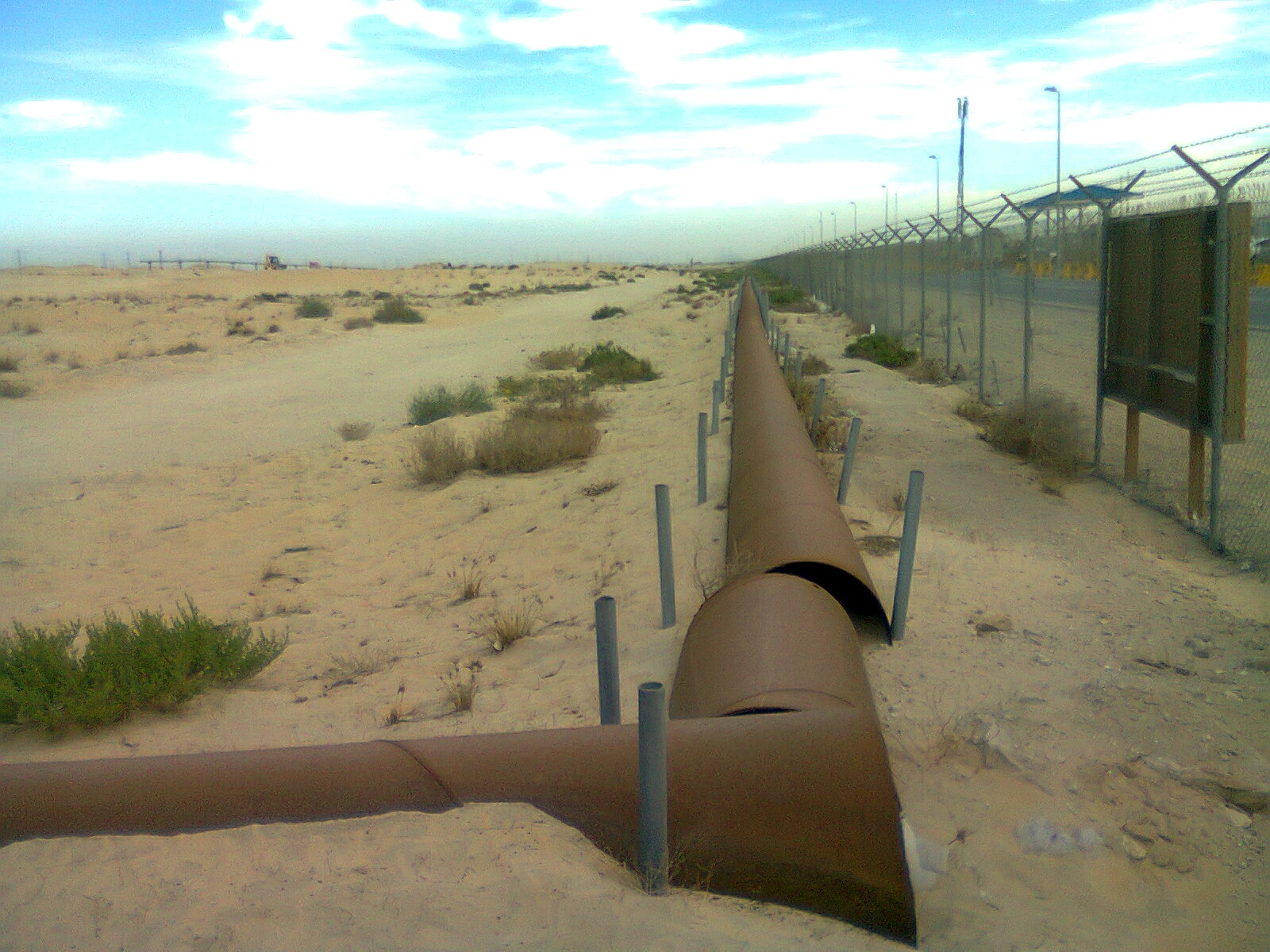Energy
Harris, Sanders, Warren Stay Mum On Fracking Ban Proposals After Attack Sends Oil Markets Soaring

Oil pipelines in Saudi Arabia. (By Suresh Babunair, CC BY 3.0, https://commons.wikimedia.org/w/index.php?curid=55850206)
- Sens. Bernie Sanders, Kamala Harris and Elizabeth Warren are staying tight-lipped on anti-fracking positions as reports show U.S. natural gas production helped prevent chaos after attacks on Saudi Arabia’s oil plants.
- An energy analyst told the Daily Caller News Foundation that their “agenda is not practical” in a world where natural gas helps the country weather such disruptions.
- Crude markets rebounded slightly after Saudi Arabia announced its oil lines would be back online shortly following attacks.
A series of attacks Saturday on two Saudi Arabian crude processing facilities that disrupted global oil markets is raising questions about Sens. Elizabeth Warren’s, Bernie Sanders’s and Kamala Harris’s recent proposals to ban fracking.
The three Democratic presidential candidates have not commented on how their promises to ban fracking will affect the market were a similar attack to happen under their administrations. They have also not responded to the Daily Caller News Foundation’s requests for comment about whether they’re keeping to their proposals.
U.S. crude oil production nearly doubled between 2008 and 2018, going from 5 million barrels a day to almost 11 million barrels a day, according to the Energy Information Agency (EIA). Fracked oil wells accounted for more than half of U.S. oil production in 2018, EIA estimated.
Oil prices spiked following the Sept. 14 attacks that disrupted about half of Saudi Arabia’s oil capacity, which accounts for roughly 5% of the daily global oil supply. Reports show the disruption would have been larger if it was not for a massive increase in oil production over the past decade.
Prices plunged Tuesday after Saudi officials said the country’s oil supply will soon be back online. Brent crude futures dropped to $64.46 per barrel from $71.95 per barrel Monday, the biggest jump in history after the attacks. President Donald Trump and other U.S officials believe Iran was behind the assault.
Energy analysts are panning any such bans.
“Just banning this would not be good news, not only for Americans but for Europeans,” Fatih Birol, executive director of the International Energy Agency, told CNBC in a Sept. 9 interview during the World Energy Conference. “This would have major implications on the market for the U.S. economy.”
Another expert went further. Kathleen Sgamma, president of the Western Energy Alliance, a group of oil and gas companies, told the DCNF that Warren’s, Sanders’s and Harris’s “agenda is not practical.”
“It’s a good reminder that we would rather get oil from American producers than from overseas. It’s like taking robotic products away from the automobile,” Sgamma said, referring to the technology she believes is crucial for increasing the country’s energy production.
Birol’s remarks came three days after Warren announced on Twitter that she would ban fracking as the president.
“On my first day as president, I will sign an executive order that puts a total moratorium on all new fossil fuel leases for drilling offshore and on public lands. And I will ban fracking — everywhere,” the Massachusetts senator told her Twitter followers on Sept. 6.
Sanders and Harris used similar arguments for their positions. Sanders, from Vermont, said on Sept. 4 that any policy designed to tackle global warming must include “a full fracking ban on public and private lands.” Harris, from California, made a similar promise during CNN’s climate forum on the same day of Sanders’s tweet.
All 10 Democratic candidates who participated in CNN’s town hall, including former Vice President Joe Biden, have proposed halting new leases to help energy companies pull out gas from millions of acres both onshore and off the coasts. Biden also said the U.S. can take millions of gas-powered vehicles off the road.
Fracking is a method of drilling that involves spraying high pressure water and sand underground to make tiny fractures in rock to release gas, which can then be liquified. A president cannot ban the method, but the executive branch can sign orders shrinking the use of fracking technology on federal lands.
Former President Barack Obama attempted to wrap the oil industry in regulations aimed at fracking but was largely thwarted through the courts. The federal government issued regulations through the Bureau of Land Management in 2015 that were meant to force companies to disclose the chemicals they use in fracking.
All content created by the Daily Caller News Foundation, an independent and nonpartisan newswire service, is available without charge to any legitimate news publisher that can provide a large audience. All republished articles must include our logo, our reporter’s byline and their DCNF affiliation. For any questions about our guidelines or partnering with us, please contact [email protected].

